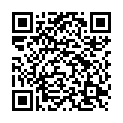|
|
|
| Module code: BIBW-120 |
|
|
4V (4 hours per week) |
|
5 |
| Semester: 1 |
| Mandatory course: yes |
Language of instruction:
English |
Assessment:
Written exam (90 minutes / can be repeated semesterly)
[updated 14.03.2018]
|
BIBW-120 (P420-0111) International Business, Bachelor, ASPO 01.10.2013
, semester 1, mandatory course
BIBW-120 (P420-0111) International Business, Bachelor, ASPO 01.10.2017
, semester 1, mandatory course
|
60 class hours (= 45 clock hours) over a 15-week period.
The total student study time is 150 hours (equivalent to 5 ECTS credits).
There are therefore 105 hours available for class preparation and follow-up work and exam preparation.
|
Recommended prerequisites (modules):
None.
|
Recommended as prerequisite for:
BIBW-350 Macroeconomics
BIBW-610 Foreign Trade and Payments
BIBW-623 Economic Policy (compulsory elective module 2)
[updated 04.02.2020]
|
Module coordinator:
Prof. Dr. Markus Münter |
Lecturer:
Prof. Dr. Markus Münter
[updated 04.02.2020]
|
Learning outcomes:
After successfully completing this module, students will have acquired knowledge about microeconomic considerations and models which can be used to:
- explain consumer and business behavior and the decisions of consumers and businesses in markets,
- analyze and develop business strategies in different market structures,
- work on case studies on consumer behavior and business strategies.
[Key learning objectives. Students will:
_ understand how to apply basic microeconomic principles and concepts
_ understand and explain consumer behavior and decision making
_ understand and explain company behavior and how managers make decisions
_ be able to explain and analyze company strategies and their relation to different types of market structures, as well as develop their own strategies]
[updated 04.02.2020]
|
Module content:
_ Consumer behavior and demand decisions
_ Decisions with regard to risk and from a behavioral perspective
_ Companies, competition and market structure
_ Company size and production decisions
_ Costs, restructuring and M&A
_ Perfect competition and the monopoly as a framework for competition policy
_ Pricing strategies with market power
_ Strategic decisions with the game theory
_ Strategic competition in the oligopoly
[Structure and content:
A) How do consumers behave?
_ Consumer behavior and demand
_ Uncertainty, risk and behavioral economics
B) How do companies and managers make decisions?
_ Theory of the company, market structure and competition
_ Company size and production decisions
_ Costs, restructuring and M&A
C) How do companies compete?
_ Perfect competition and the monopoly as a framework for competition policy
_ Pricing with market power
_ Strategic decision-making with the game theory
_ Strategic competition in an oligopoly]
[updated 14.03.2018]
|
Teaching methods/Media:
Lecture, exercises, case studies, workshop.
[updated 14.03.2018]
|
Recommended or required reading:
_ Pindyck, R. and Rubinfeld, D., Microeconomics, latest edition, Pearson, New Jersey.
_ Besanko, D. and Braeutigam, R., Microeconomics, latest edition, Wiley, New Jersey.
_ Frank, R. and Cartwright, E., Microeconomics and behaviour, latest edition, McGraw Hill, Maidenhead.
[updated 14.03.2018]
|


